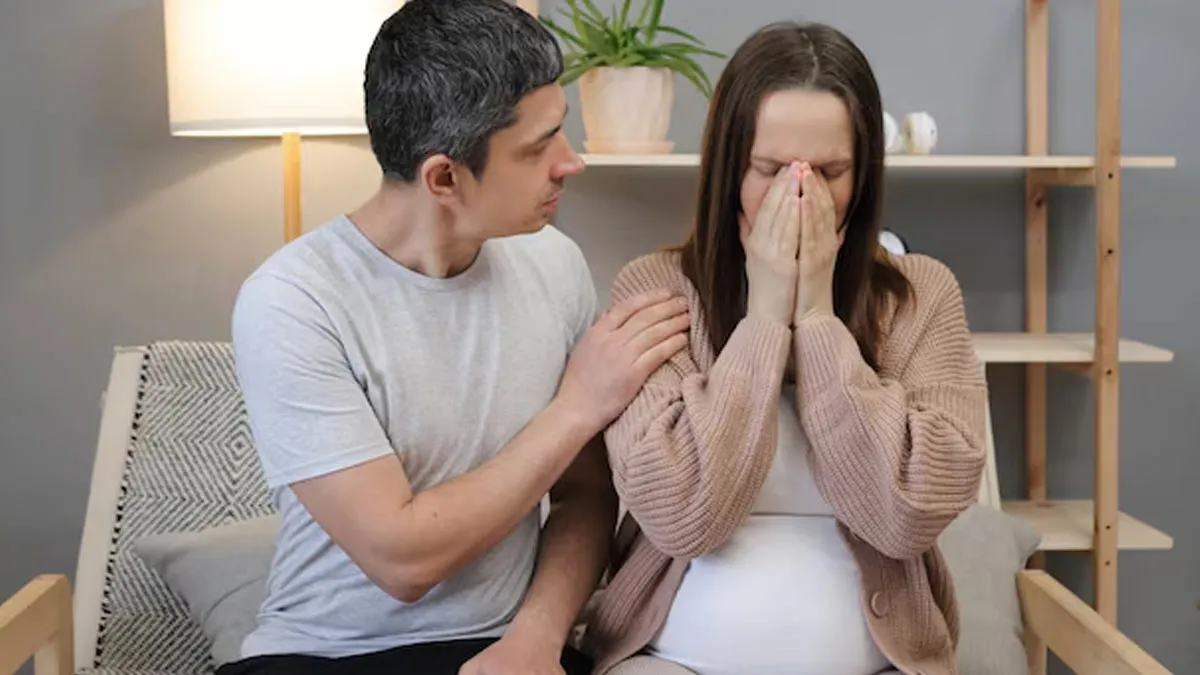
It’s easy to dismiss a woman’s mood swings, irritability or emotional outbursts as just her attitude. However, what if there’s more to it than meets the eye? Well, it could be hormones, powerful chemical messengers that regulate many bodily functions. Studies and experts suggest that hormones can have a huge influence on emotions, energy levels, and overall mental health.
Table of Content:-
Thus, understanding the difference between hormonal changes and behavioural patterns can help improve empathy and communication in relationships with your girlfriends, wives, or any female in your life.
Why Hormones Can Affect Mood So Powerfully
Hormones, including oestrogen, progesterone, and testosterone, change throughout the course of the menstrual cycle. Such fluctuations can impact serotonin levels, or the feel-good neurotransmitter that affects mood, appetite, and sleep.
"As progesterone rises during the luteal phase, which is the time between ovulation and menstruation-bloating, fatigue, and irritability are felt," Dr Sadhna Singhal Vishnoi, Senior Consultant, Obstetrics and Gynaecology, Cloudnine Group of Hospitals, New Delhi, explained to us previously. It is here that PMS or its drastic form, PMDD, may make one feel that their emotions are quite strong and unpredictable.
Also Read: Bloated During Periods? Expert Shares What It Means

On the other hand, low levels of oestrogen, which happen just before and after menstruation, may cause anxiety, a low mood, and poor concentration. Even hormonal birth control or thyroid imbalance can affect emotional stability.
How to Tell If It’s Hormonal or Just an Attitude Issue
While each individual has their own character and coping mechanism, there are a few signs that mood swings are driven more by hormones than emotions:
- Cyclical Pattern: If your partner's mood changes seem to follow a monthly pattern-around ovulation or just before her period-then hormones are likely playing a part.
- Physical symptoms accompany mood changes: When irritability or sadness is accompanied by fatigue, cramps, headaches, or bloating, it's usually hormonal.
- Sudden Emotional Drop without Obvious Trigger: If she is feeling teary, restless, or anxious at times when there is no situational reason, hormonal fluctuations may be the cause.
- Mood improves after the period or rest; once the hormonal phase is over, emotions often balance out.
“It’s important not to label hormonal changes as moodiness or a bad attitude. Recognising that it’s a biological response helps couples communicate with more compassion rather than conflict,” added Dr Vishnoi.
Also Read: Chinese Food On Period Days: Comfort or Discomfort? We Asked An Expert

What Partners Can Do to Support
Empathy and communication are the most important things to consider when it comes to supporting your partner. Rather than reacting defensively, experts suggest partners should try these approaches:
- Track patterns together: Have her mark down changes in mood, the date of her cycle, and physical symptoms. Recognising patterns minimises misunderstandings.
- Offer comfort, not correction-either small gestures, like making her tea, helping with chores, or giving space, might mean much when the hormones are at work.
- Avoid dismissive language: Phrases such as “You’re overreacting” or “You’re just hormonal” will only make matters worse. Replace these with, “I can see you’re struggling — how can I help?”
- Encourage healthy lifestyle habits such as aerobics, proper nutrition, sleep, and effective ways of stress reduction to stabilise hormonal fluctuations.
- Hormones are not an excuse for poor behaviour, but they are a valid factor in emotional regulation. Knowing this difference creates healthier relationships and helps women feel supported instead of judged.
Bottomline
Sometimes it's not her attitude; it's her hormones. Understanding that difference can turn conflict into compassion and cement relationships.
FAQ
1. How can I tell if my girlfriend's mood swings are due to hormones?
If these emotional changes occur at the same time each month or are related to other physical changes, such as fatigue or cramping, they're likely hormonal.2. Can hormonal changes really affect emotions that much?
Yes. Hormones such as estrogen and progesterone have a direct impact on serotonin and dopamine, which regulate mood, energy, and stress levels.3. What should I do if her mood swings affect our relationship?
Encourage her to see a doctor. Monitoring her cycle, adopting better lifestyle habits, and showing empathy can be of immense help in trying to cope with both partners.
How we keep this article up to date:
We work with experts and keep a close eye on the latest in health and wellness. Whenever there is a new research or helpful information, we update our articles with accurate and useful advice.
Current Version
Nov 06, 2025 17:25 IST
Published By : Tanya Srivastava